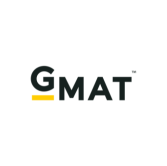
Graduate Management Admission Test (GMAT) Exam
About GMAT
The Graduate Management Admission Test (GMAT) is a standardized assessment designed to evaluate the analytical, quantitative, verbal, reading, and writing skills of candidates aspiring to pursue graduate management education, such as an MBA (Master of Business Administration). Accepted by thousands of business schools worldwide, the GMAT serves as a crucial component in the admissions process.
Eligibility
Educational Qualification: There are no specific educational prerequisites for taking the GMAT exam. However, candidates must have completed at least an undergraduate degree from a recognized university or institution. Most business schools require a bachelor’s degree for admission into their MBA programs.
Age Limit: There is no age limit for taking the GMAT exam. Candidates of any age who meet the educational requirements can register and take the exam.
Importance of the GMAT exam
Admissions Requirement: Many business schools, especially those offering MBA programs, require GMAT scores as part of their admissions criteria. A high GMAT score can significantly enhance a candidate’s chances of being accepted into their desired MBA program.
Standardized Evaluation: The GMAT provides a standardized measure of candidates’ abilities in critical thinking, problem-solving, data analysis, and communication skills. Business schools use GMAT scores to evaluate applicants’ academic readiness and potential for success in their graduate management programs.
- Benchmarking: GMAT scores serve as a benchmark for comparing candidates from diverse educational backgrounds and geographical locations. It allows business schools to assess applicants on a level playing field and make informed decisions about admissions and scholarships.
- Global Recognition: The GMAT is widely recognized and accepted by business schools worldwide. Whether you’re aspiring to study in North America, Europe, Asia, or any other region, a competitive GMAT score can open doors to prestigious MBA programs and enhance your career prospects globally.
- Scholarship Opportunities: Many business schools offer scholarships and financial aid to students based on their GMAT scores. A high GMAT score not only improves your chances of admission but also increases your eligibility for scholarships and merit-based financial assistance.
- Career Advancement: For professionals seeking career advancement or transition into management roles, an MBA degree from a reputable business school can be a valuable asset. A strong GMAT score is often a prerequisite for admission into top MBA programs, which can lead to enhanced career opportunities and higher earning potential.
Sections of the exam
Analytical Writing Assessment (AWA):
- Duration: 1 hour
- Tasks:
- Analyze an Argument: Candidates are presented with an argument and are required to critique it by assessing its logical reasoning, evidence, and structure.
- Purpose: This section assesses the ability to critically evaluate and communicate ideas effectively in written form. It evaluates skills such as analyzing arguments, organizing thoughts, and presenting coherent written responses.
2. Integrated Reasoning (IR):
- Duration: 30 minutes
- Tasks:
- Multi-Source Reasoning: Candidates analyze data presented in multiple formats (tables, graphs, texts) to answer questions.
- Table Analysis: Candidates interpret data presented in a table format to solve problems.
- Graphics Interpretation: Candidates analyze and interpret information presented in graphical form (e.g., scatterplots, bar charts).
- Two-Part Analysis: Candidates solve complex problems by considering multiple pieces of information and selecting the appropriate solutions.
- Purpose: The Integrated Reasoning section evaluates the ability to evaluate and synthesize information from multiple sources to solve complex problems. It assesses skills such as data analysis, critical thinking, and decision-making.
3. Quantitative Reasoning:
- Duration: 62 minutes
- Tasks:
- Problem Solving: Candidates solve quantitative problems involving arithmetic, algebra, geometry, and data analysis.
- Data Sufficiency: Candidates determine whether given data is sufficient to solve a problem and use logical reasoning to evaluate statements.
- Purpose: The Quantitative Reasoning section assesses mathematical proficiency and the ability to apply quantitative reasoning skills to solve real-world problems. It evaluates skills such as mathematical operations, problem-solving, and data interpretation.
4. Verbal Reasoning:
- Duration: 65 minutes
- Tasks:
- Reading Comprehension: Candidates read passages on various topics and answer questions based on the content, structure, and purpose of the passages.
- Critical Reasoning: Candidates evaluate arguments and identify assumptions, draw logical inferences, and evaluate the strength of evidence.
- Sentence Correction: Candidates identify errors in sentence structure, grammar, and usage and select the most effective and grammatically correct sentence.
- Purpose: The Verbal Reasoning section assesses language proficiency and the ability to understand and evaluate written English. It evaluates skills such as reading comprehension, critical reasoning, and grammatical correctness.
